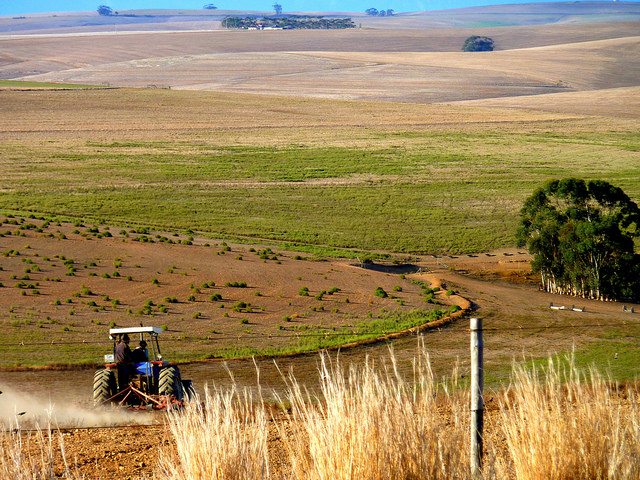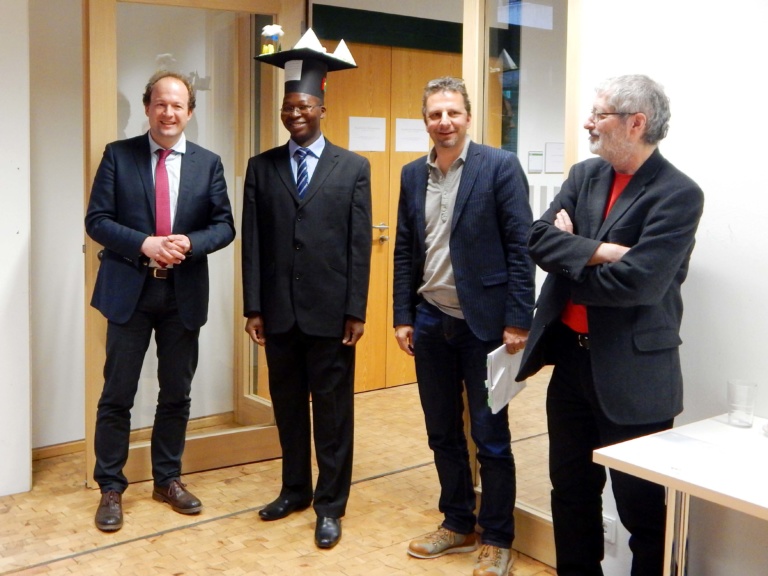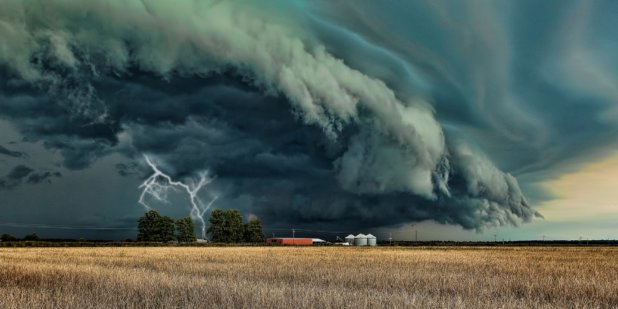- About
- Topics
- Picks
- Audio
- Story
- In-Depth
- Opinion
- News
- Donate
- Signup for our newsletterOur Editors' Best Picks.Send
Read, Debate: Engage.

He should have planted his seedlings already. Maize and sorghum, those used to be the most important plants for him and his family. But the rainy season has not yet started in Burkina Faso. If he plants too early, he might lose his seedlings due to another long dry spells which might occur shortly after planting. If he plants too late, the seedlings wouldn't make it to full maturity until the end of rainy season.
But when does the rain come?
"In the last 20 years, the onset of the rainy season has shifted by an average of three weeks"
Waongo doesn't know, nor do his neighbors. Millions of fellow African farmers don't really know it anymore.
Climate change will hit the weakest first, scientists say. In Africa, these are the millions of small-scale farmers struggling to make a living. Rainfed agriculture is the main source of income and the main driver of economic growth in Africa, particularly in West Africa.
Unlike almost every other region in the world, the crop production in the sub-saharan regions of West Africa remains at the same level as in the 1960s. The small increases that occurred where due to an increase in accessible land for agriculture rather than an increase in yield.
The farmers still rely on traditional knowledge, which has been passed on for generations. But that does not help them anymore in the light of climate change. The delivered processes of sowing and harvest need to be re-adjusted. And they are reluctant to cultivate new varieties that are said to adapt better to the changing conditions, because they are afraid to end up in dependency to the new suppliers – quite a reasonable concern.
But to rely on the traditional varieties is becoming more and more like a lottery game. And since weather phenomena like heavy floods and droughts are likely to intensify, one of the consequences for the farmers is expected to be an exacerbation of land degradation, especially a continuous depletion of soil nutrients which will lower crop yields. And the soil fertility is expected to decrease even further due to those new erratic climate conditions.
Therefore, applying the latest technologies and approaches
in the field of agricultural water management are vital for
agricultural development and thus food security. However, only those strategies which require little resources in terms of labor and money have a chance to be used by a large number of farmers.
"What those farmers need the most is a reliable prediction of when the rain will come", Waongo explains. “Knowing when the rainy season starts is key, no matter what variety of seedlings is used.”

In 2010, after achieving a masters degree in Physics at the University of Ouagadougou, Burkina Faso, and an engineer degree in Agro météorology from AGRHYMET Regional Center in Niamey, Niger, which is a specilaized institution of the Permanent Interstates Committee for Drought Control in the Sahel (CILSS), Moussa Waongo went to Germany to achieve his PhD in Natural Science. He applied at the Institute for Meteorology and Climate Research (IMK-IFU) in Garmisch-Partenkirchen.
One of his lecturers remembers Waongo as a very talented young scientist. "Whatever he learned here, he always had its practical application in mind, the question 'How does that knowledge help me and my fellow farmers and neighbors in Burkina Faso?'”
So it is not surprising that Wanogo's PhD thesis provided a method to derive optimal planting times for farmers in West Africa.
And he learned about a project that could truly be a game changer, as it could – in a few years time – revolutionize the weather forecast in Africa.
When he left Germany, Moussa Waongo was awarded the "Outstanding Student Poster Award 2014" by the European Geoscience Union (EGU), the association of European geoscientists. Now Waongo works as a meteorologist at the University of Ouagadougou. He became head of the agrarian climatology department at the national weather service in Burkina Faso. But there is something more important than awards and medals, he says: "In the future, we will have better rain forecasts, and our farmers will gain from that. They'll know how to plant and when. Safe harvests mean food security for all of us, and I would like to contribute to that."
